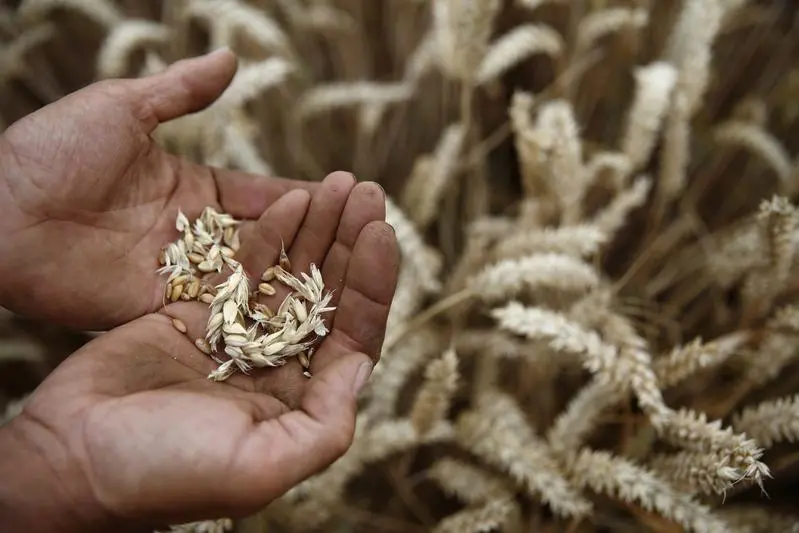PHOTO
(Adds quotes from state miller, background)
By Khalid Abdelaziz
KHARTOUM, July 29 (Reuters) - Sudan's central bank has raised the U.S. dollar exchange rate at which wheat imports are purchased, effectively reducing the subsidy.
The government decision is set to raise wheat prices by around 35 percent, an official at the state-owned Seen Flour Mills told the state news agency Suna on Wednesday, adding that the large subsidy the government was paying for imported wheat had led to a shortage of the commodity in the market.
One banking source and a Sudanese wheat trader confirmed the change saying that the central bank had sent a document to concerned parties changing the rate from 2.9 Sudanese pounds a dollar to 4 Sudanese pounds for wheat imports.
"Large amounts of pounds go to subsidising wheat ... but the citizen does not benefit, rather the wheat producers in the countries that we import from do," Al-Aqeb Abdelrahim of Seen Flour Mills said.
Protests erupted in Sudan in 2013 when the government announced fuel subsidy cuts.
The Sudanese economy has suffered since the secession of oil-producing South Sudan in 2011, which deprived it of about three quarters of the crude production it relied on for state revenues and foreign currency used to import food.
(Reporting By Khalid Abdelaziz; Writing By Maha El Dahan; Editing by Greg Mahlich) ((Maha.Dahan@thomsonreuters.com; + 9712 4082101; Reuters Messaging: maha.dahan.thomsonreuters.com@reuters.net))
Keywords: SUDAN WHEAT/SUBSIDY





















